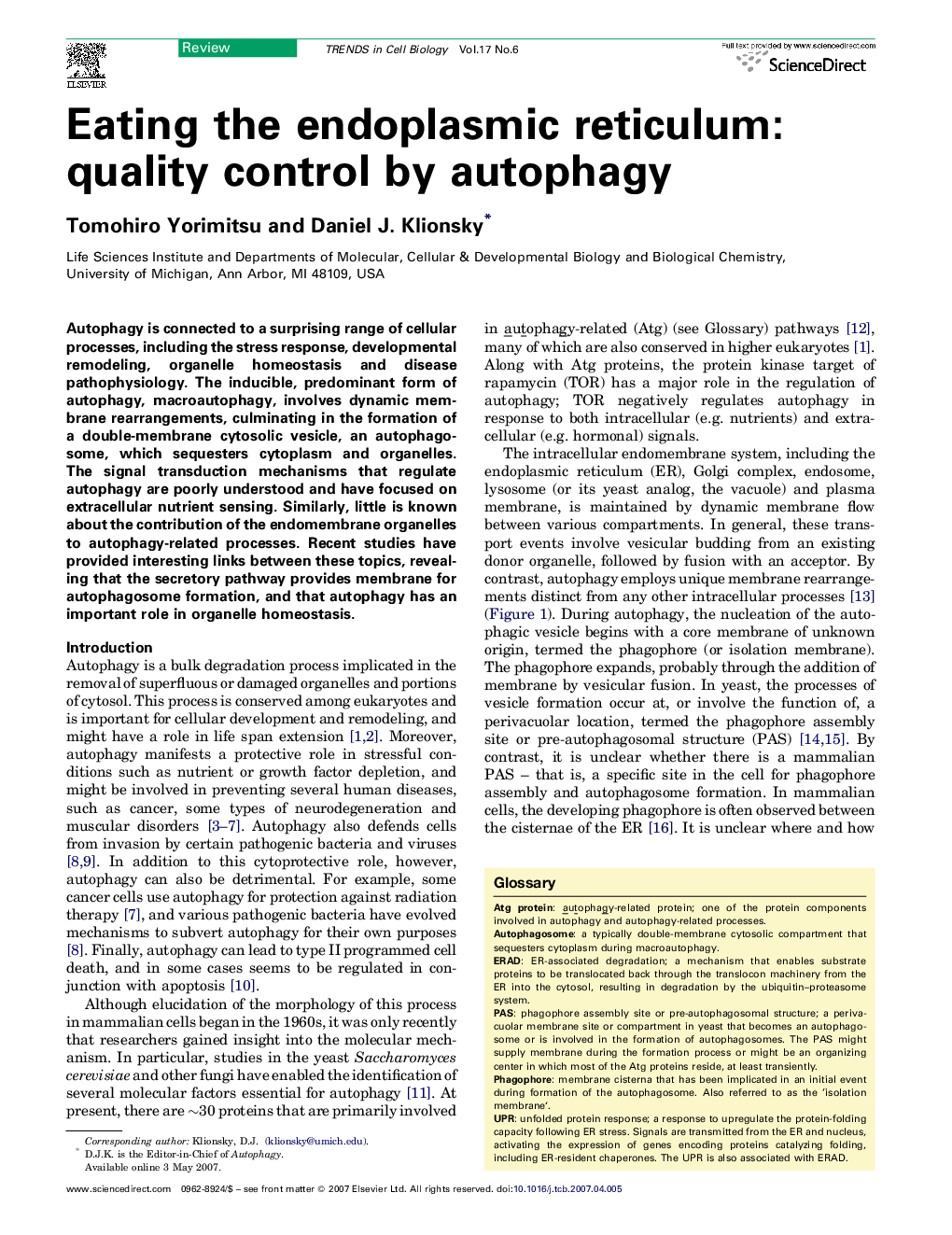| Article ID | Journal | Published Year | Pages | File Type |
|---|---|---|---|---|
| 2205032 | Trends in Cell Biology | 2007 | 7 Pages |
Autophagy is connected to a surprising range of cellular processes, including the stress response, developmental remodeling, organelle homeostasis and disease pathophysiology. The inducible, predominant form of autophagy, macroautophagy, involves dynamic membrane rearrangements, culminating in the formation of a double-membrane cytosolic vesicle, an autophagosome, which sequesters cytoplasm and organelles. The signal transduction mechanisms that regulate autophagy are poorly understood and have focused on extracellular nutrient sensing. Similarly, little is known about the contribution of the endomembrane organelles to autophagy-related processes. Recent studies have provided interesting links between these topics, revealing that the secretory pathway provides membrane for autophagosome formation, and that autophagy has an important role in organelle homeostasis.
